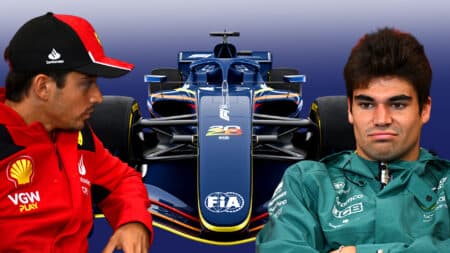
Tomorrow's F1 starting grid for the 2025 British Grand Prix
Max Verstappen will start on pole for the 2025 British Grand Prix after a brilliant last gasp qualifying lap. Here's how the starting grid looks for Sunday's race at Silverstone
The FIA International Tribunal has found Mercedes guilty of breaching Article 22 of the Sporting Regulations by testing with a current car – and both the team and Pirelli are deemed to have broken Article 151 of the Sporting Code for conduct prejudicial to the interests of the sport.
The Tribunal has decided to ban Mercedes from taking part in July’s three-day Young Driver Test at Silverstone – which means that the team loses the opportunity for reserve driver Sam Bird to run for three days alongside rivals with the W04 and 2013 tyres.
In addition both Pirelli and Mercedes have been reprimanded.
The Tribunal admitted that in determining what many will perceive as a light sentence the four judges took into account the discussions that the team and Pirelli had with the FIA’s Charlie Whiting, and also attempted to balance things out with rival teams, who will now have a chance to test for three days.
They note that the sentence was: ‘Based on all the circumstances of the case and: (i) with the specific objective that, insofar as it is reasonably practicable to do so, the other teams should be placed in a similar position to that in which Mercedes is in as a result of the breach of article 22 SR and articles 1 and 151 ISC and Pirelli of articles 1 and 151 ISC ; (ii) in recognition of the fact that the testing would not have taken place but for the bona fide, but misconceived “qualified approval” which was given on behalf of the FIA.’
They made it clear that despite claims that it was only a Pirelli test, Mercedes had benefited.
Crucially the Tribunal noted: ‘It is inconceivable that Mercedes did not obtain a material advantage from three days of testing even if only as a result of the running of its car(s) – wholly irrespective of any matter relating to tyres. Further, Ross Brawn candidly accepted in his evidence that it was inevitable that some advantage had been obtained, although he regarded that advantage as having been minimal.’
The Tribunal also noted: ‘Mercedes did obtain some material advantage (even if only by way of confirmation of what had not gone wrong) as a result of the testing, which, at least potentially, gave it an unfair sporting advantage, to the knowledge and with the intention of Pirelli. In the light of the data which Pirelli did in fact pass to Mercedes by way of the confidential email referred to under paragraph 37.8 above, it is plain beyond sensible argument that Pirelli had intended confidentially to pass some data to Mercedes, which Pirelli expressly regarded as being of high importance even if, as we accept, it was in fact of limited value to Mercedes because it was unaware of the tyre(s) to which the report related.’
Regarding Whiting’s role, it said: ‘The actions taken on behalf of FIA by Charlie Whiting (having taken advice from the legal department of FIA) were taken in good faith and with the intention of assisting the parties and consistent with sporting fairness.’
Click here for more on Formula 1.

Max Verstappen will start on pole for the 2025 British Grand Prix after a brilliant last gasp qualifying lap. Here's how the starting grid looks for Sunday's race at Silverstone

Austrian GP winner Norris went quickest at Silverstone during the Friday F1 practice sessions ahead of the 2025 British Grand Prix

Lewis Hamilton hadn't won in almost three years – and then produced a sensational victory at Silverstone 2024. James Elson explains why it was his best ever

As more drivers get a feel for the 2026 Formula 1 cars in simulators, concern is growing that the new regulations may sacrifice driving enjoyment in pursuit of technical ambition, as Mark Hughes reports